We place outstanding pastoral care at the centre of everything we do. We want our pupils to be happy and successful - in that order. We take pride in our pupils treating each other with respect and looking after one another.
Each pupil is allocated a form teacher for the year who has pastoral responsibility for every child in their class. The form teacher acts as a main point of contact. All teachers who come into contact with a pupil accept additional pastoral responsibility, whether during lesson time, at lunchtime or through play times. It is a strength of our school that our children are well-known to all staff, thus creating an extended family atmosphere. This is reinforced by the school meeting as a community twice each day, firstly for assembly and then for lunch.
A lively programme of Personal, Health, Social & Economic (PSHE) Education helps to support the children’s development and reassures each child that they are both cared for and cared about.
Along with trained first aiders, we have a Pupil Welfare team of two: our Pupil Wellbeing Officer who is qualified as an ELSA, with special training from educational psychologists, who is supported by a second member of staff with counselling training. Together they work with children to help them to learn to understand their emotions and the feelings of those around them and provide the time and space for pupils to think about their personal circumstances and how best to manage them. All our children are nurtured in accordance with their individual needs. When facing a challenge, they will usually be able to cope without that extra support. ELSA sessions are there to support those children who may from time to time need a little extra help in their emotional literacy, self-esteem and social skills.
Safeguarding and Child Protection
Lancing College and the Prep schools fully recognise their responsibilities for safeguarding and child protection and that every child has the right to protection from abuse and exploitation. We maintain an environment where children feel secure, are encouraged to talk, and are listened to. We ensure children know that there are adults in the school whom they can approach if they are worried. We have included opportunities in the PSHE curriculum for children to develop the skills they need to recognise and stay safe from abuse.
Our safeguarding arrangements have regard to official guidance in: ‘Working Together to Safeguard Children’ (HM Gov July 2018); ‘Keeping Children Safe in Education’ (DfE September 2023); ; in The Revised Prevent Duty - Departmental Advice for Schools and Childcare providers (HM Gov June 2015); The Use of Social Media for On-Line Radicalisation (HM Gov June 2015) in What to do if you are worried that a child is being abused – Advice for Practitioners (HM Gov March 2015) in Information Sharing: Advice to practitioners providing safeguarding services (HM Gov July 2018). These arrangements also have regard to the advice in Promoting Children and Young People’s Emotional Health and Wellbeing (HM Gov March 2015); Preventing and Tackling Bullying (DfE July 2017) and Mental Health and Behaviour in Schools (DfE Nov 2018). In so doing they take proper account of any particular circumstance or context of the school which may indicate a need for protocols greater than the minimum legal requirements.
The School Designated Safeguarding Lead (DSL) is the first point of contact for any member of the school staff who has a concern about the safety and well-being of a pupil. The DSL at Lancing Prep Hove is Mr Daniel Clifton. The Deputy DSL is Mrs Lianne Morrison.
Online Safety (E-Safety)
Online Safety is an important part of keeping children safe at Lancing Prep Hove. We have extensive security measures in place in school, which are monitored both internally and externally, to help safeguard pupils from potential dangers or unsuitable material. Online Safety is taught to all pupils explaining and demonstrating how to stay safe and behave appropriately online.
We work with parents to ensure the Online Safety message is consistent. It is important that parents speak to their children about how they can keep safe and behave appropriately online.
Resources for parents on this can be found by clicking here.
 Close
Close